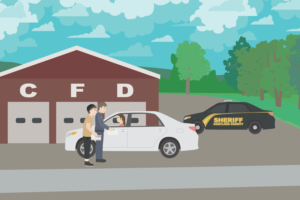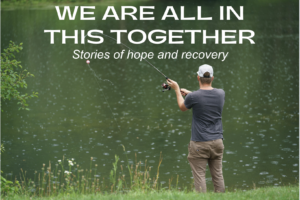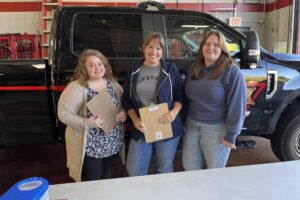Healing Cortland Launches 2nd Medication for Opioid Use Disorder Education Campaign in Cortland County
No matter who we are or where we come from, we all know at least one person affected by Opioid Use Disorder. In 2021, 16 individuals died from an opioid- related overdose in Cortland County (coroner). Opioids remained a factor in over 80% of 11 fatal overdoses in 2022, also. Although there was a decrease in fatal overdoses from 2021 to 2022, early data indicates that there have already been at least three fatal overdoses in 2023, tied to an opioid. These don’t include at least 100 suspected opioid-related non-fatal overdoses that occurred in the City of Cortland alone over the last two years. Opioid use disorder (OUD) is a type of substance use disorder, a chronic condition characterized by a pattern of opioid use that causes significant impairment or distress to the person using opioids. Like many other chronic conditions, opioid use disorder can be managed with medications like buprenorphine, naltrexone, and methadone. Collectively called MOUD–medications for opioid use disorder–these medications reduce withdrawal symptoms and cravings and decrease the risk of returning to use and dying of an overdose. However, fear of being judged or discriminated against keeps people with OUD from seeking the medication they need to support their recovery.
To address this challenge, Cortland County will implement the second of three communications campaigns from March 6 – May 5, 2023 to help:
- increase understanding of medications for opioid use disorder (MOUD) and
- reduce stigma that impacts people with the condition from seeking medical care.
Valerie Partridge, Program Manager at Catholic Charities’ Wishing Wellness Peer Center, has seen the impacts of medication stigma first-hand. She wants folks to know that there are people in our community who can help:
“If you are struggling, please reach out. I understand how difficult it can be to make that first step, I’ve been there. MOUD helped me find and manage my recovery, it could help you too.”
“This campaign is proud to shine a light on these stories from local spokespeople about their recovery journey and how they have overcome challenges to access medication for opioid use disorder to support their recovery,” said Ashley Dickson, Communications Champion.
“These stories have power, and continue to save lives by inspiring people with opioid use disorder to reach out and connect with providers to start on and support their journey. Medication is one of many pathways, and there is no wrong way to be in recovery. Learning about, engaging with, and knowing it is okay to stay on medication as long as needed will save lives in our community.”
Listen to their recent interview on WXHC’s Meet Cortland County.
About the HEALing Communities Study
The National Survey on Drug Use and Health (NSDUH) estimates that 2.1 million Americans have opioid use disorder, yet fewer than 20% of those receive specialty care in a given year. New York state has one of the highest rates of opioid overdose deaths in the nation. A menu of evidence-based practices (EBPs) exists, including opioid overdose education and naloxone distribution programs, prescription opioid safety, FDA-approved medications for opioid use disorder, behavioral therapies, and recovery support services. Unfortunately, these EBPs have largely failed to penetrate community settings.
As a result, the National Institutes of Health (NIH) and the Substance Abuse and Mental Health Services Administration (SAMHSA) launched the HEALing Communities Study (HCS) to identify the evidence-based practices that are most effective at the local level in preventing and treating opioid use disorder. The goal of the study is to reduce opioid-related overdose deaths by 40 percent. The first phase of the study, which ended June 30, occurred in Cayuga, Columbia, Greene, Erie, Lewis, Putnam, Suffolk, and Ulster Counties. The second phase of the study will now run through December 2023 in Cortland, Broome, Chautauqua, Genesee, Monroe, Orange, Sullivan, and Yates counties.
In support of this work, Cortland County is collaborating with local partners on the newly formed Opioid Task Force to launch three communications campaigns:
- Naloxone-Fentanyl Education (Fall 2022),
- Medication for Opioid Use Disorder Awareness and Anti-Stigma, and
- MOUD Treatment Retention
To learn more about this project and to help end overdoses in Cortland County, visit:
- Website: healtogetherny.org/cortland
- Facebook: facebook.com/healingcortland
- Or contact Aster Parrott, Community Engagement Coordinator, aparrott@cortlandareactc.org or (607) 218-5488 (call or text)
Many agencies and individuals have joined with Healing Cortland to make this effort a success – and we want to thank them. They include:




